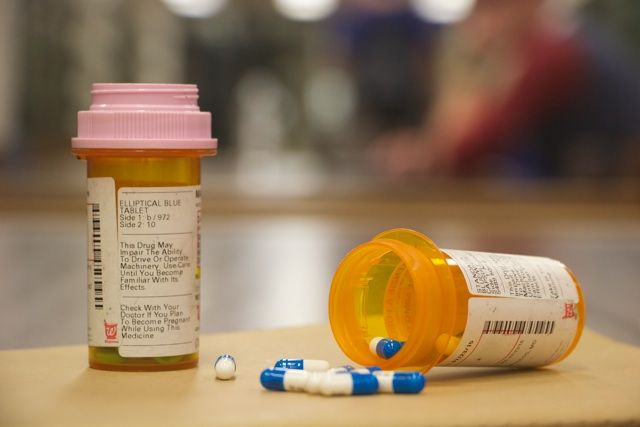King: Pill pushing in America
February 23, 2016
When it comes to health care, the United States might be considered the land of the pill pushers and home of the quick fix. The country houses 5 percent of the world’s population, but consumes 80 percent of its painkillers. A total of 11 percent of U.S. children are diagnosed with ADHD and are prescribed amphetamine-based medication because of it. Also, 11 percent of American adults take antidepressants.
Far too many people rely on pills to solve their problems.
Before I explain why so many Americans are taking prescription drugs, I first want to say that I’m very aware that there are people out there who really do need medication. I’m not accusing everybody who takes medication of taking the easy way out of their problems because those problems are sometimes formed by biological issues that can only be corrected with certain drugs.
However, I think broad illness classifications make people think they have medical issues, when they really just have life issues.
Symptoms of ADHD, which may warrant a medical diagnoses and a prescription to amphetamine-based drugs, include “trouble focusing, restlessness, impulsivity, disorganization, trouble coping with stress and difficulty completing tasks,” according to the Mayo Clinic. I’m not exaggerating when I say that almost everybody in the world has experienced every one of these symptoms not only at some point in their lives but all the time.
If someone experiences trouble focusing, it could just be a sign he or she hasn’t found the right job or the right hobbies yet. Just because a kid has trouble focusing in math class doesn’t mean his brain is dysfunctional. It might mean he’s bored because he’s meant to be an artist or writer. If you start treating that same kid with Adderall, he may start to focus more of his attention on math and be swept into the illusion that he actually enjoys it. This could easily squelch his interest in art and/or writing.
I think broad illness classifications also cause too many people to think they have depression, as anxiety, discontent, sadness and guilt are not uncommon for most people. Labeling sadness as a disease that is best fixed with drugs has made 1 in 10 Americans dependent on antidepressants.
If people are sad or discontent, it could just be a sign from a wiser version of themselves that they’re not pursuing the right path in life. Rather than antidepressants, they may just need a new hobby to cure their discontent or to settle issues they have with people in their lives in order to cure their guilt. When people take drugs to make them feel better, these issues are masked and never appropriately worked through.
The problem with painkillers in the United States is that they’re too easy to get and extremely addictive — a combination that easily leads to abuse. A 2009 National Survey uncovered that 70 percent of the time painkillers are used for non-medical reasons they are obtained through family and friends. Too many painkillers in circulation in the country leads to this issue.
Some people really do have ADHD and depression and need prescription drugs because their life situation is drastically improved through medication; however, I believe these kinds of drugs are overprescribed.
Doctors who are locked and loaded with prescription pads need to make sure not to use them too quickly. They might be helping people avoid the true source of their problems and turn people into life-long drug users in the process.







